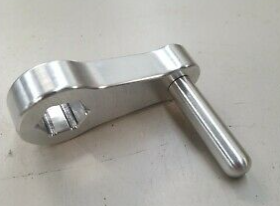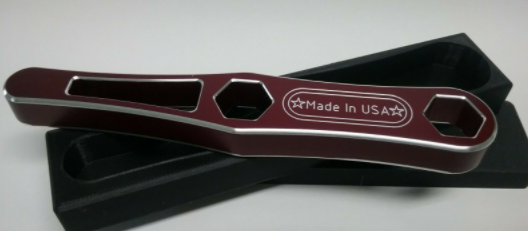Hey everyone, just musing a little bit right now and I thought there are probably some individuals on this forum that would be able to chime in. I know this is the
hobby machinist forum, but I don't find the more professional cousin of this forum to be particularly friendly. Some background: I spent a little over two and a half years working for an aerospace machine shop in their sheet metal department before being laid off in July due to coronavirus related slowdowns. The job wasn't half bad, however I didn't find it to be the type of place that was interested in creating what I would consider to be true machinists, more parts pushers that could do one step of a process to make a good part. The good of it was that it ignited my interest in machining, I was usually using one of the few bridgeports (total CNC, production oriented shop, no repair/service work to necessitate manual machines) in the shop for personal projects after hours, and it has led to me contracting the sickness and purchasing a lathe and mill

. I also do know how to weld (Took welding in school and worked at it professionally for a short time) but am lacking a machine at the moment, 120v only power in my garage has limited my options there and made me hesitant to purchase anything for fear that I will be disappointed by its performance. Some may have seen my recent purchase of an Enco branded RF-30, as well as an Atlas QC54 that I'm in the process of restoring.
Anyway, like many other people I do have the pipe dream of one day running my own operation and getting to have a one man band shop to pay the bills. I've found a new job in a completely different field, but ultimately don't feel a ton of passion for the work, which has really set my mind turning about my occupation. Coming from my recent background I'm familiar with the dizzying array of equipment a major commercial shop would have, which I'm approximately only 2.743 million miles away from comparing to with my two manual machines and decent set of mechanic's tools in a 10x20 garage

. However that also means that my experience is rooted in the large scale commercial world, not that of the small job shop world, which I am largely unfamiliar with. Is there any work to be had for such humble beginnings with only manual machines? Or am I dreaming until I increase my dragon's hoard of equipment and space available? I'm primarily interested in repair/service work, and short runs/one offs. I know long run production is where the money is, but frankly having to do the same part 1000 times over makes me feel like my eyes are going to bleed. Prior to my unemployment I was occasionally getting small side jobs every so often such as minor modifications to turbocharger housings or brake calipers, etc. $100 here, $100 there type jobs that I would complete at my previous employer, usually with pretty basic tools. I will definitely be resuming that type of activity once I get my machines set up, and who knows, it could turn into a somewhat more steady customer base over time. But are there any markets or businesses that could be untapped that I'm not thinking of? Or maybe some of the users of this forum have experience trying to grow this kind of business from ground zero. To me right now, it is a purely a hobby and not a livelihood, but sometimes I can't help but daydream about it becoming something more.








 . However that also means that my experience is rooted in the large scale commercial world, not that of the small job shop world, which I am largely unfamiliar with. Is there any work to be had for such humble beginnings with only manual machines? Or am I dreaming until I increase my dragon's hoard of equipment and space available? I'm primarily interested in repair/service work, and short runs/one offs. I know long run production is where the money is, but frankly having to do the same part 1000 times over makes me feel like my eyes are going to bleed. Prior to my unemployment I was occasionally getting small side jobs every so often such as minor modifications to turbocharger housings or brake calipers, etc. $100 here, $100 there type jobs that I would complete at my previous employer, usually with pretty basic tools. I will definitely be resuming that type of activity once I get my machines set up, and who knows, it could turn into a somewhat more steady customer base over time. But are there any markets or businesses that could be untapped that I'm not thinking of? Or maybe some of the users of this forum have experience trying to grow this kind of business from ground zero. To me right now, it is a purely a hobby and not a livelihood, but sometimes I can't help but daydream about it becoming something more.
. However that also means that my experience is rooted in the large scale commercial world, not that of the small job shop world, which I am largely unfamiliar with. Is there any work to be had for such humble beginnings with only manual machines? Or am I dreaming until I increase my dragon's hoard of equipment and space available? I'm primarily interested in repair/service work, and short runs/one offs. I know long run production is where the money is, but frankly having to do the same part 1000 times over makes me feel like my eyes are going to bleed. Prior to my unemployment I was occasionally getting small side jobs every so often such as minor modifications to turbocharger housings or brake calipers, etc. $100 here, $100 there type jobs that I would complete at my previous employer, usually with pretty basic tools. I will definitely be resuming that type of activity once I get my machines set up, and who knows, it could turn into a somewhat more steady customer base over time. But are there any markets or businesses that could be untapped that I'm not thinking of? Or maybe some of the users of this forum have experience trying to grow this kind of business from ground zero. To me right now, it is a purely a hobby and not a livelihood, but sometimes I can't help but daydream about it becoming something more.